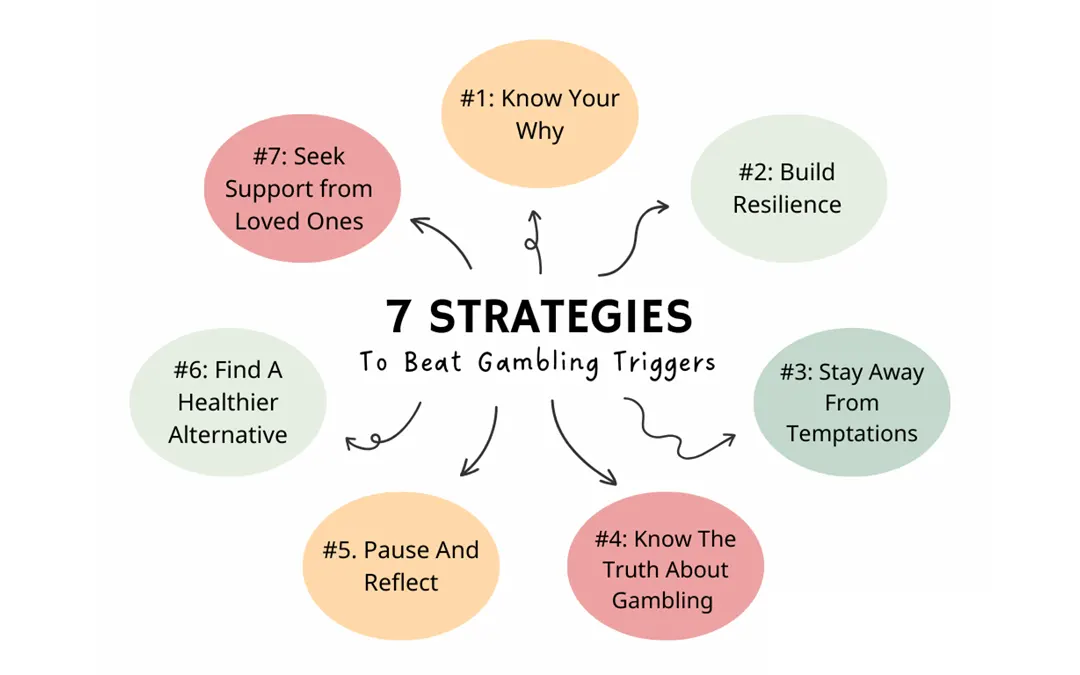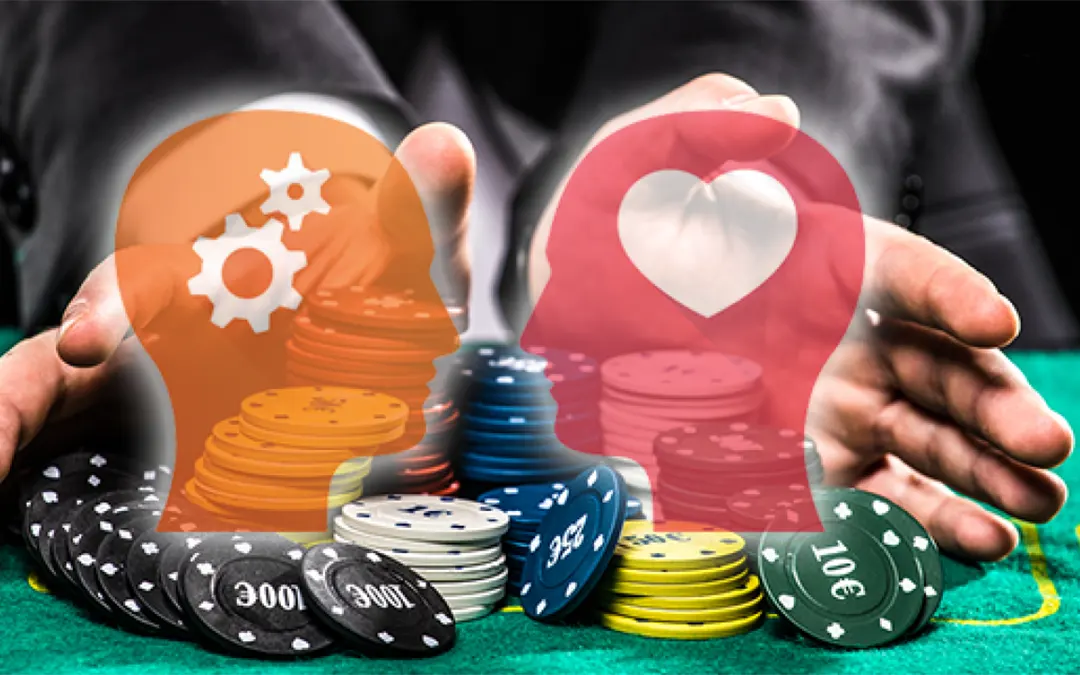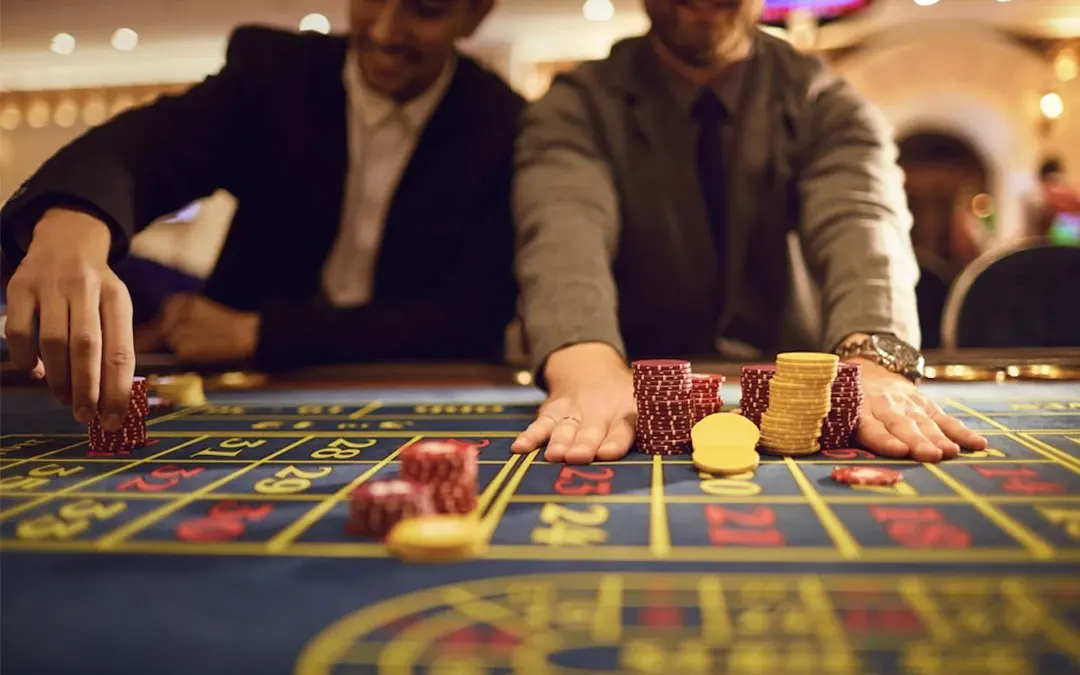In betting games like Baccarat, Keno, Roulette, and other casino games, losing streaks are an inevitable part of the experience that every player encounters. These consecutive losses are not just mathematical occurrences but psychological tests that can determine whether a player maintains control or spirals into destructive behavior patterns.
The real challenge isn’t necessarily about how much money is lost during these streaks, but rather how the psychological pressure afterward can cause players to lose complete control over their actions. The emotional response to consecutive losses often leads to poor decision-making that compounds the original losses exponentially.
82 Lottery recognizes that maintaining a “cool head” during these challenging periods is crucial for long-term gambling success. Through years of observing player behavior and collecting feedback from experienced gamblers, the platform has developed strategies to help players navigate these difficult psychological waters while preserving both their bankroll and mental well-being.
Why Losing Streaks Lead to Loss of Control
The psychological pressure that builds during losing streaks creates a perfect storm of emotional responses that can destroy rational decision-making. The primary driver is the intense pressure to recover losses quickly, which leads players to increase their bet sizes beyond their comfort zone. This “all-or-nothing” mentality becomes particularly dangerous when combined with the natural human tendency to believe that past losses somehow increase the probability of future wins.
Anger and fear become dominant emotions during extended losing periods. Players become angry at themselves, the game, or even the casino, while simultaneously fearing that they might lose their entire bankroll. This emotional cocktail creates a state of mind where logical thinking becomes nearly impossible.
The psychological phenomenon known as the “gambler’s fallacy” plays a significant role in loss of control. Players convince themselves that they’re “due” for a win, or that their losing streak must end soon simply because it has continued for so long. This false belief leads to increasingly desperate betting behavior as players chase outcomes that they believe are statistically inevitable.

The reality is that most players who experience significant losses do so not because they encountered unusually bad luck, but because they lost their composure and made increasingly poor decisions while trying to recover from initial losses. The cards, dice, or wheel don’t care about previous outcomes – each event is independent, but human psychology struggles to accept this fundamental truth.
Warning Signs of Losing Control
Recognizing the early warning signs of losing psychological control is crucial for preventing minor losses from becoming major disasters. One of the most obvious indicators is dramatically increasing bet sizes after losses, often referred to as “doubling down” or “martingale” behavior. When players start betting multiples of their normal amount in an attempt to recover losses quickly, they’ve entered dangerous territory.
Emotional responses provide clear warning signals. Players who find themselves getting angry, making statements like “I’ll keep playing until I win,” or feeling compelled to continue gambling despite reaching their predetermined limits are showing classic signs of losing control. The rational mind that set those limits initially is being overridden by emotional impulses.
Sleep disruption and obsessive thinking about gambling results are serious psychological warning signs. When players find themselves lying awake replaying hands, calculating what they “should have” won, or constantly thinking about their next gambling session, the activity has moved beyond entertainment into potentially problematic territory.
Perhaps most critically, abandoning previously established bankroll management plans indicates a complete loss of disciplined approach. When players start using money designated for other purposes, borrowing funds, or ignoring their own rules about when to stop, they’ve crossed into dangerous psychological territory that often leads to much larger losses.
Strategies for Emotional Control During Losing Streaks
1. Stop and Take Breaks Instead of Chasing Losses
The most effective strategy for managing losing streaks is to stop playing immediately when emotional control begins to waver. This might mean taking a break for a few minutes, several hours, or even several days until psychological equilibrium returns. The key is recognizing that continuing to play while emotionally compromised almost always leads to worse outcomes.
Taking breaks allows the emotional intensity to decrease and rational thinking to return. Many experienced players have a rule that they automatically take at least a 15-minute break after any significant loss, regardless of how they feel in the moment. This cooling-off period often prevents impulsive decisions that could lead to much larger losses.
2. Set Loss Limits Before Playing
One of the most effective techniques for maintaining control is “Setting Win/Loss Limits” before beginning any gambling session. These predetermined boundaries serve as automatic circuit breakers that prevent emotional decision-making during stressful moments. When players reach their loss limit, they stop playing regardless of how they feel or what their instincts tell them about the next bet.
The key to effective loss limits is setting them when rational thinking is at its peak – before any gambling begins. Once money is at risk and emotions are engaged, the ability to make clear-headed decisions becomes compromised. Pre-established limits remove the burden of making difficult decisions during emotionally charged moments.
3. Change Environment and Activities
Physical environment plays a significant role in maintaining psychological control. When experiencing a losing streak, changing surroundings can help break the negative emotional cycle. This might mean leaving the casino, closing the gambling app, or simply moving to a different room.

Engaging in completely different activities helps reset emotional state. Physical exercise, listening to music, taking a walk, or engaging in hobbies can provide the mental break necessary to regain perspective. These activities also produce positive endorphins that can counteract the negative emotions associated with losing.
4. Document Results and Emotions
Keeping detailed records of both gambling results and emotional states provides valuable insight into personal patterns and triggers. This documentation helps players identify specific situations or emotional states that lead to poor decision-making, allowing them to develop personalized strategies for managing these challenges.
Many successful players maintain gambling journals that include not just win/loss records, but also notes about their emotional state before, during, and after play. This self-awareness tool helps identify patterns that might not be obvious in the moment but become clear when reviewed objectively.
5. View Gambling as Entertainment, Not Wealth Building
Maintaining the proper perspective on gambling’s role in life is crucial for emotional control. When players view gambling as entertainment with associated costs rather than as a wealth-building strategy, they’re much more likely to maintain emotional equilibrium during losing streaks.
This mindset shift helps players accept losses as the cost of entertainment, similar to paying for movies, concerts, or other leisure activities. When gambling is properly positioned as entertainment rather than investment, losing streaks become less emotionally devastating and more manageable.
Long-Term Psychological Management Tips
Successful long-term gambling requires developing sustainable psychological habits that extend beyond individual sessions. The most important mental preparation is beginning each gambling session with acceptance that both winning and losing are possible outcomes. This balanced perspective helps prevent the emotional extremes that lead to poor decision-making.
Avoiding gambling when already in poor emotional states is crucial for maintaining control. Players who are stressed, tired, angry, or depressed are much more likely to make impulsive decisions and lose emotional control during challenging moments. Recognizing these vulnerable states and postponing gambling until emotional stability returns is a key skill.

Learning from the gambling community can provide valuable insights into emotional control techniques. Many experienced players share their strategies for managing psychological challenges, and these collective wisdom can help newer players develop their own coping mechanisms.
82 Lottery encourages players to regularly assess their gambling habits and emotional responses. This ongoing self-evaluation helps identify problems before they become serious and allows for timely adjustments to gambling behavior and emotional management strategies.
Common Mistakes When Facing Losing Streaks
One of the most dangerous mistakes players make during losing streaks is believing in the “hot hand” fallacy – the idea that bad luck must eventually end and be followed by good luck. This false belief leads to increased betting with the expectation that wins are imminent, often resulting in even larger losses.
Borrowing money to chase losses represents perhaps the most serious mistake players can make. This behavior indicates that gambling has moved beyond entertainment and into potentially destructive territory. When players start using credit cards, loans, or money designated for essential expenses, they’ve crossed a line that rarely leads to positive outcomes.
Completely attributing losses to bad luck while ignoring strategic elements represents another common error. While luck certainly plays a role in gambling outcomes, players who refuse to examine their decision-making processes, betting patterns, and emotional responses miss opportunities to improve their overall approach.
Maintaining Composure – The Key to Long-Term Success
Losing is an inherent part of gambling that every player must accept and learn to manage effectively. The players who succeed over the long term are not those who never lose, but those who maintain emotional control during difficult periods and make rational decisions regardless of recent outcomes.

Mastering emotional control during losing streaks not only minimizes financial damage but also preserves the enjoyment that should be the primary goal of gambling. When players can maintain their composure during challenging periods, they’re more likely to make good decisions during winning streaks as well.
The psychological skills developed through managing losing streaks often translate to other areas of life. Learning to maintain emotional control under pressure, accept disappointing outcomes gracefully, and stick to predetermined plans despite temptation are valuable life skills that extend far beyond gambling.
82 Lottery hopes that these insights help players develop the emotional resilience necessary for safe, enjoyable, and sustainable gambling experiences. The platform remains committed to providing not just entertainment, but also the tools and knowledge necessary for responsible gambling practices.
Remember that developing emotional control is an ongoing process that requires constant attention and practice. Even experienced players occasionally struggle with these challenges, but those who consistently apply these principles find that they can enjoy gambling while minimizing its potential negative impacts on their lives and finances.


